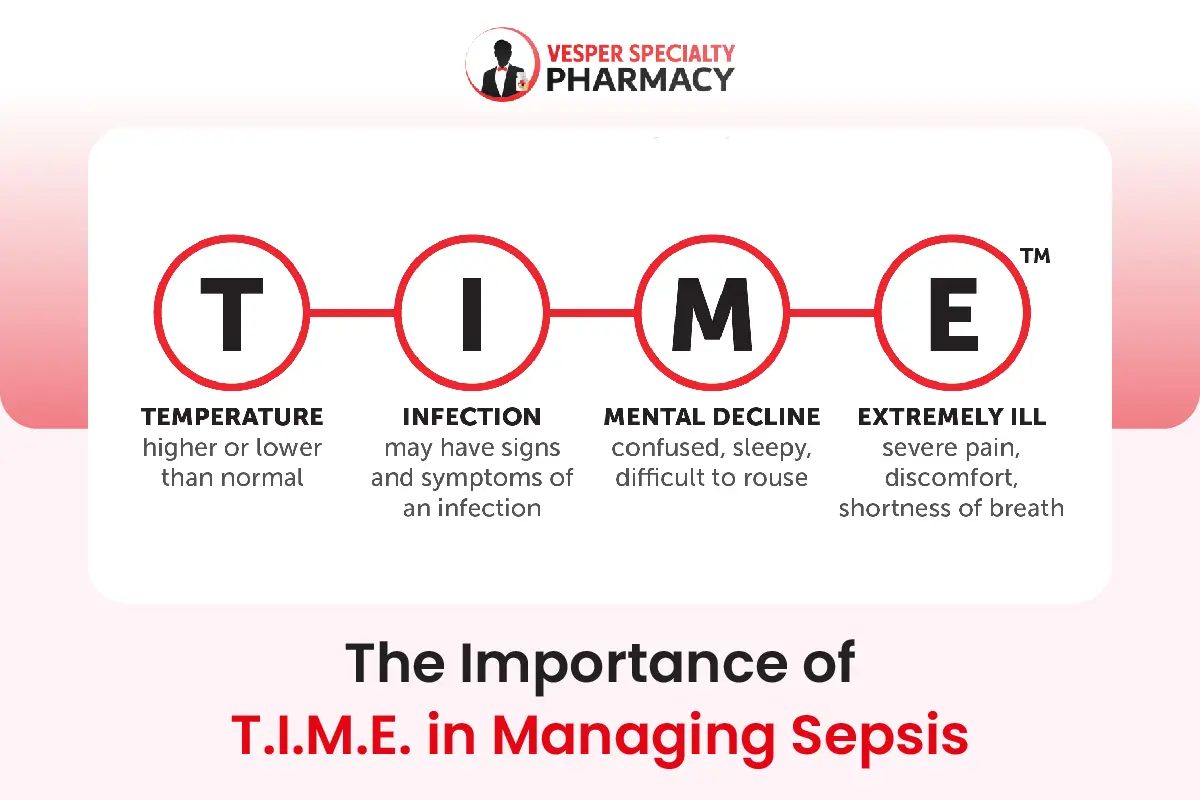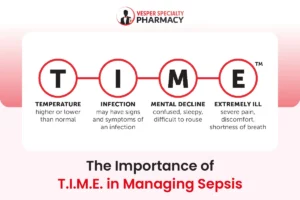In the intricate realm of the human brain, neurotransmitters stand as indispensable chemical messengers that orchestrate the symphony of thoughts, emotions, and behaviors. These microscopic molecules play a pivotal role in transmitting signals between nerve cells, shaping the intricate network that defines our cognitive and emotional experiences.
Table of Contents
Explanation of Neurotransmitters
Neurotransmitters facilitate communication between neurons, the fundamental units of the nervous system. These messengers traverse the synapses, the junctions between neurons, transmitting signals across the neural network. Each neurotransmitter has a unique function, influencing mood, cognition, and various physiological processes.
Preview of the Importance of Neurotransmitter Balance for Mental Health
Maintaining a delicate balance of neurotransmitters is crucial for optimal mental health. An imbalance in these chemical messengers can lead to a myriad of mental health issues, including anxiety, depression, and mood disorders. Factors such as stress, genetics, and lifestyle choices can disrupt this equilibrium, underscoring the significance of understanding and managing neurotransmitter balance.
What Are Neurotransmitters?
Neurotransmitters are specialized chemical messengers that play a fundamental role in brain function. Operating as communicators between nerve cells, or neurons, they facilitate the transmission of signals throughout the intricate neural network. These molecules are essential for various cognitive, emotional, and physiological processes, forming the foundation of our mental and emotional well-being.
Signal Transmission Between Nerve Cells
The transmission of signals between nerve cells occurs at synapses, the junctions where neurons connect. When a nerve impulse reaches the end of a neuron, it triggers the release of neurotransmitters into the synapse.
These neurotransmitters then bind to receptor sites on the adjacent neuron, transmitting the signal across the gap and allowing the message to continue its journey through the nervous system. This intricate process ensures the seamless flow of information within the brain.
Overview of Major Neurotransmitters
- Dopamine:
- Often referred to as the “feel-good” neurotransmitter.
- Plays a crucial role in motivation, reward, and pleasure.
- Imbalances are linked to conditions like Parkinson’s disease and schizophrenia.
- Serotonin:
- Regulates mood, sleep, and appetite.
- Impacts feelings of well-being and happiness.
- Linked to disorders such as depression and anxiety.
- Norepinephrine:
- Functions as both a neurotransmitter and a hormone.
- Plays a role in the body’s fight-or-flight response.
- Influences attention, alertness, and mood.
- Gamma-Aminobutyric Acid (GABA):
- Acts as an inhibitory neurotransmitter.
- Helps regulate anxiety and stress responses.
- Plays a role in promoting relaxation and sleep.
The Significance of Neurotransmitter Balance
Maintaining a delicate balance of neurotransmitters is paramount for optimal mental health. These chemical messengers act as conductors orchestrating the symphony of our thoughts and emotions. A harmonious equilibrium ensures the smooth functioning of the nervous system, allowing us to navigate life’s challenges with resilience and emotional well-being.
Contribution of Imbalances to Mental Health Disorders
Disruptions in neurotransmitter balance can significantly contribute to the development of various mental health disorders. For instance:
- Depression:
- Reduced levels of serotonin and norepinephrine are often associated with depressive disorders.
- Imbalances in these neurotransmitters can lead to feelings of sadness, hopelessness, and a lack of motivation.
- Anxiety Disorders:
- GABA, the calming neurotransmitter, plays a crucial role in anxiety regulation.
- Insufficient GABA levels may contribute to heightened anxiety and stress responses.
- Attention-Deficit/Hyperactivity Disorder (ADHD):
- Dopamine, among other neurotransmitters, is implicated in ADHD.
- Imbalances in dopamine levels may affect attention, focus, and impulse control.
Impact on Mood, Cognition, and Overall Well-being
- Mood Regulation:
- Serotonin, dopamine, and norepinephrine play pivotal roles in mood regulation.
- Imbalances can manifest as mood swings, irritability, or persistent feelings of sadness.
- Cognitive Function:
- Neurotransmitters influence cognitive processes such as memory, learning, and attention.
- Imbalances may lead to difficulties in concentration, memory lapses, or impaired cognitive function.
- Overall Well-being:
- The delicate interplay of neurotransmitters extends beyond mental health, influencing physical well-being.
- Proper neurotransmitter balance contributes to optimal sleep, energy levels, and stress management.
Understanding the intricate connection between neurotransmitter balance and mental health underscores the importance of addressing these chemical imbalances.
Common Neurotransmitter Imbalances
Low Serotonin Levels and Association with Depression and Anxiety
Low serotonin levels are often linked to the development of depression and anxiety disorders. Serotonin, known as the “feel-good” neurotransmitter, contributes to mood stabilization and a sense of well-being. When serotonin levels are insufficient, individuals may experience:
- Depression: Reduced serotonin is associated with persistent feelings of sadness, hopelessness, and a lack of interest in activities.
- Anxiety: Serotonin’s role in regulating mood extends to anxiety management, and low levels can contribute to heightened stress and anxiety.
Dopamine Dysregulation and Its Link to Addiction and Attention Disorders
Dopamine, a key player in the brain’s reward system, is implicated in various conditions when dysregulated:
- Addiction: Overstimulation of the dopamine system, often due to substance abuse or behavioral addictions, can lead to dependency and addiction.
- Attention Disorders (e.g., ADHD): Dopamine imbalances are associated with attention and impulse control issues, commonly observed in conditions like Attention-Deficit/Hyperactivity Disorder (ADHD).
Norepinephrine Imbalances and Their Role in Mood Disorders
Norepinephrine, acting as both a neurotransmitter and hormone, plays a crucial role in mood regulation. Imbalances in norepinephrine levels are associated with mood disorders such as:
- Depression: Low norepinephrine levels may contribute to symptoms of lethargy, fatigue, and a persistent lack of motivation.
- Mania (in Bipolar Disorder): Elevated norepinephrine levels during manic phases may lead to increased energy, impulsivity, and heightened arousal.
GABA Deficiency and Its Connection to Anxiety and Sleep Disturbances
Gamma-Aminobutyric Acid (GABA) is the primary inhibitory neurotransmitter, crucial for calming neural activity. Deficiencies in GABA are linked to:
- Anxiety Disorders: Inadequate GABA levels may result in heightened anxiety and an inability to regulate stress responses effectively.
- Sleep Disturbances: GABA’s calming effect extends to promoting relaxation and sleep. GABA deficiency can contribute to insomnia and disrupted sleep patterns.
Understanding these common neurotransmitter imbalances provides insight into the complex interplay within the brain.
Causes of Neurotransmitter Imbalances
Genetics plays a pivotal role in determining individual predispositions to neurotransmitter imbalances. Certain genetic variations can affect the synthesis, release, or reuptake of neurotransmitters, influencing susceptibility to mental health conditions. A family history of mood disorders, anxiety, or other neurological conditions may indicate a genetic component, highlighting the importance of understanding one’s genetic background.
Environmental Factors, Including Stress and Trauma
External factors, particularly stress and trauma, can significantly disrupt neurotransmitter balance. Chronic stress triggers the release of stress hormones, impacting neurotransmitter levels over time. Traumatic experiences, especially during critical developmental periods, may alter the brain’s structure and function, contributing to persistent imbalances. Understanding and mitigating environmental stressors are crucial for maintaining optimal neurotransmitter equilibrium.
Lifestyle Choices, Including Diet and Substance Abuse
1. Diet:
- Nutritional choices directly influence neurotransmitter production. For example, inadequate intake of precursor nutrients, such as tryptophan for serotonin or tyrosine for dopamine, can contribute to imbalances.
- Diets high in processed foods, sugar, and caffeine may negatively impact neurotransmitter function.
2. Substance Abuse:
- Substance abuse, including alcohol, drugs, and certain medications, can disrupt neurotransmitter balance.
- For instance, long-term drug use may interfere with the release, reception, or reuptake of neurotransmitters, leading to imbalances and dependency.
Medications and Medical Conditions
1. Medications:
- Some medications, including antidepressants, antipsychotics, and mood stabilizers, directly impact neurotransmitter levels.
- Adjustments in medication dosage or discontinuation should be closely monitored to prevent disruptions in neurotransmitter equilibrium.
2. Medical Conditions:
- Neurological conditions, such as Parkinson’s disease or multiple sclerosis, can affect neurotransmitter production and function.
- Hormonal imbalances, thyroid disorders, and chronic illnesses may also contribute to disruptions in neurotransmitter activity.
Understanding the multifaceted nature of these contributing factors is essential for developing comprehensive approaches to address neurotransmitter imbalances.
Recognizing Symptoms of Neurotransmitter Imbalances
Common Signs and Symptoms Associated with Specific Neurotransmitter Imbalances:
1. Low Serotonin Levels:
- Symptoms: Persistent sadness, feelings of hopelessness, changes in appetite, disrupted sleep patterns, low energy levels, and a lack of interest in activities.
- Associated Disorders: Major depressive disorder, anxiety disorders.
2. Dopamine Dysregulation:
- Symptoms: Lack of motivation, difficulty concentrating, impaired cognitive function, changes in mood, and in some cases, addictive behaviors.
- Associated Disorders: Attention-Deficit/Hyperactivity Disorder (ADHD), addiction, mood disorders.
3. Norepinephrine Imbalances:
- Symptoms: Fluctuations in mood, persistent fatigue, difficulty concentrating, changes in sleep patterns, and heightened stress responses.
- Associated Disorders: Depression, bipolar disorder, attention disorders.
4. GABA Deficiency:
- Symptoms: Heightened anxiety, restlessness, muscle tension, sleep disturbances, and an inability to relax.
- Associated Disorders: Anxiety disorders, insomnia.
Identifying When an Imbalance May Be Contributing to Mental Health Concerns:
Recognizing the signs of neurotransmitter imbalances requires attentiveness to changes in thoughts, feelings, and behaviors. Consider the following indicators:
- Persistent and Disruptive Symptoms:
- If symptoms persist over an extended period and significantly impact daily functioning.
- Changes in Mental and Emotional Well-being:
- Sudden and unexplained shifts in mood, cognition, or emotional state.
- Impact on Daily Functioning:
- Difficulty maintaining relationships, fulfilling work or academic responsibilities, or engaging in regular activities.
- Recurring Mental Health Challenges:
- If there is a history of recurrent mood disorders, anxiety, or other mental health concerns.
The Importance of Seeking Professional Evaluation and Diagnosis:
While recognizing symptoms is crucial, self-diagnosis is not a substitute for professional evaluation. Seeking the expertise of mental health professionals, including psychiatrists and psychologists, is essential for accurate diagnosis and tailored treatment plans. Professional assessments may include:
- Clinical Interviews:
- In-depth discussions to understand the nature, duration, and impact of symptoms.
- Psychological Assessments:
- Standardized tests to assess cognitive function, emotional well-being, and potential underlying conditions.
- Biological Markers:
- Neuroimaging or laboratory tests to evaluate neurotransmitter levels and identify physiological contributors.
Professional evaluation ensures a comprehensive understanding of the individual’s mental health and enables the development of targeted interventions, including psychotherapy, medication, or lifestyle modifications.
Restoring Neurotransmitter Balance
1. Medications and Psychiatric Interventions:
- Antidepressants: Selective serotonin reuptake inhibitors (SSRIs), serotonin-norepinephrine reuptake inhibitors (SNRIs), and other classes of antidepressants can help regulate neurotransmitter levels associated with mood disorders.
- Antipsychotics: Used to modulate dopamine levels, particularly in conditions like schizophrenia.
- Mood Stabilizers: For conditions such as bipolar disorder, medications like lithium help stabilize mood by impacting neurotransmitter activity.
2. Lifestyle Modifications:
- Dietary Changes: Consume a balanced diet rich in essential nutrients, including omega-3 fatty acids, vitamins, and minerals, to support neurotransmitter synthesis.
- Regular Exercise: Physical activity boosts serotonin and dopamine levels, promoting overall mental well-being.
- Adequate Sleep: Prioritize quality sleep, as it plays a crucial role in neurotransmitter regulation.
3. Nutritional and Dietary Supplements:
- Omega-3 Fatty Acids: Found in fish oil, they support brain health and neurotransmitter function.
- Amino Acid Precursors: Supplements like tryptophan and tyrosine can provide the building blocks for serotonin and dopamine synthesis.
- Vitamins and Minerals: Ensure sufficient intake of B-vitamins, zinc, and magnesium, which play roles in neurotransmitter metabolism.
4. Mindfulness and Relaxation Techniques:
- Meditation: Mindfulness meditation can reduce stress, impacting cortisol levels and indirectly affecting neurotransmitter balance.
- Yoga: Combining physical activity with mindfulness, yoga promotes relaxation and may positively influence neurotransmitter levels.
- Deep Breathing Exercises: Controlled breathing techniques help activate the parasympathetic nervous system, promoting a sense of calm.
5. Psychotherapy:
- Cognitive-Behavioral Therapy (CBT): Effective for conditions like depression and anxiety, CBT can help reshape negative thought patterns and behaviors.
- Dialectical Behavior Therapy (DBT): Particularly helpful for mood disorders and borderline personality disorder, DBT incorporates both cognitive and behavioral approaches.
6. Electroconvulsive Therapy (ECT):
- For Severe Cases: ECT is considered for severe depression or certain psychiatric conditions.
- Impact on Neurotransmitters: ECT may influence neurotransmitter release and receptor sensitivity.
Holistic Well-being for Neurotransmitter Harmony
A comprehensive approach to mental health considers a combination of these strategies, tailored to individual needs. Professional guidance is paramount in determining the most suitable interventions. The journey to restoring neurotransmitter balance often involves a collaborative effort, addressing biological, psychological, and social aspects for sustainable mental well-being.
Seeking Professional Help
Embarking on the journey to mental well-being is a commendable decision, and seeking professional help is a crucial and empowering step in this process. Here’s why reaching out to mental health professionals is so important:
1. Expert Diagnosis and Assessment:
- Mental health professionals, including psychiatrists, psychologists, and therapists, possess specialized training to accurately diagnose and assess neurotransmitter imbalances.
- Their expertise allows for a thorough understanding of individual symptoms, history, and context, ensuring a precise diagnosis.
2. Tailored Treatment Plans:
- Professionals develop personalized treatment plans, recognizing that each individual’s needs and experiences are unique.
- Tailoring interventions to specific neurotransmitter imbalances and associated symptoms enhances the effectiveness of treatment.
3. Medication Management:
- Psychiatrists are skilled in prescribing and monitoring medications that target neurotransmitter imbalances.
- They can adjust medications based on individual responses, minimizing side effects and optimizing therapeutic benefits.
4. Therapeutic Support:
- Psychotherapists offer various therapeutic modalities, such as Cognitive-Behavioral Therapy (CBT), Dialectical Behavior Therapy (DBT), and others.
- Therapists guide individuals in developing coping mechanisms, addressing thought patterns, and fostering resilience.
5. Holistic Approach:
- Mental health professionals often take a holistic approach, considering biological, psychological, and social factors influencing mental well-being.
- This comprehensive perspective contributes to a more well-rounded and effective treatment strategy.
6. Empowerment and Education:
- Professionals empower individuals by providing education about neurotransmitter imbalances and mental health conditions.
- Understanding the nature of imbalances fosters an informed and collaborative approach to treatment.
7. Ongoing Support and Monitoring:
- Regular sessions with mental health professionals allow for ongoing support, adjustments to treatment plans, and monitoring of progress.
- This continuous care is instrumental in maintaining and enhancing mental well-being over time.
Encouragement to Take the First Step:
If you or someone you know is experiencing symptoms that suggest neurotransmitter imbalances, do not hesitate to seek professional evaluation. Taking the first step toward professional help is an act of self-care and resilience. Your mental health is a priority, and there is support available to guide you on the path to well-being.
Remember, seeking help is a strength, and professionals are dedicated to assisting you in reclaiming and maintaining a balanced and fulfilling life. You don’t have to navigate this journey alone – reach out, and let the healing begin.
Preventing Neurotransmitter Imbalances
Maintaining optimal neurotransmitter balance is key to promoting overall mental health. Here are proactive tips and preventive measures to foster a harmonious neurotransmitter environment:
1. Stress Management Strategies:
- Mindfulness Meditation: Incorporate mindfulness practices to reduce stress and enhance emotional well-being.
- Deep Breathing Exercises: Practice deep, controlled breathing to activate the relaxation response and counteract stress.
2. Healthy Diet and Nutrition Choices:
- Balanced Macronutrients: Consume a well-balanced diet with adequate proteins, carbohydrates, and healthy fats to support neurotransmitter synthesis.
- Omega-3 Fatty Acids: Include sources like fatty fish, flaxseeds, and walnuts to promote brain health.
3. Regular Exercise and Physical Activity:
- Aerobic Exercise: Engage in regular aerobic activities like walking, running, or cycling, known to boost serotonin and dopamine levels.
- Strength Training: Incorporate strength training to support overall physical and mental well-being.
4. Avoiding Substance Abuse and Excessive Alcohol Consumption:
- Moderation: If consuming alcohol, do so in moderation to prevent disruptions in neurotransmitter balance.
- Avoid Illicit Drugs: Refrain from using illicit substances, as they can have profound and negative impacts on neurotransmitter function.
5. Adequate Sleep:
- Consistent Sleep Schedule: Establish a regular sleep routine to ensure sufficient and restful sleep.
- Create a Relaxing Environment: Optimize your sleep environment for tranquility and relaxation.
6. Social Connection and Support:
- Meaningful Relationships: Cultivate positive and supportive social connections, as social interactions can influence neurotransmitter release.
- Open Communication: Share feelings and concerns with trusted friends, family, or mental health professionals.
7. Mind-Body Practices:
- Yoga: Incorporate yoga into your routine for a combination of physical activity and mindfulness.
- Tai Chi: This gentle martial art promotes balance, relaxation, and mental focus.
8. Limit Caffeine Intake:
- Moderation: While moderate caffeine consumption is generally safe, excessive intake may contribute to anxiety and disrupt sleep.
Cultivating a Balanced Lifestyle:
By integrating these preventive measures into your lifestyle, you can proactively support neurotransmitter balance and promote mental well-being. Remember, small, consistent efforts contribute to long-term health. If you ever notice persistent changes in mood, cognition, or behavior, seeking professional guidance ensures early intervention and personalized strategies for maintaining optimal neurotransmitter equilibrium.















